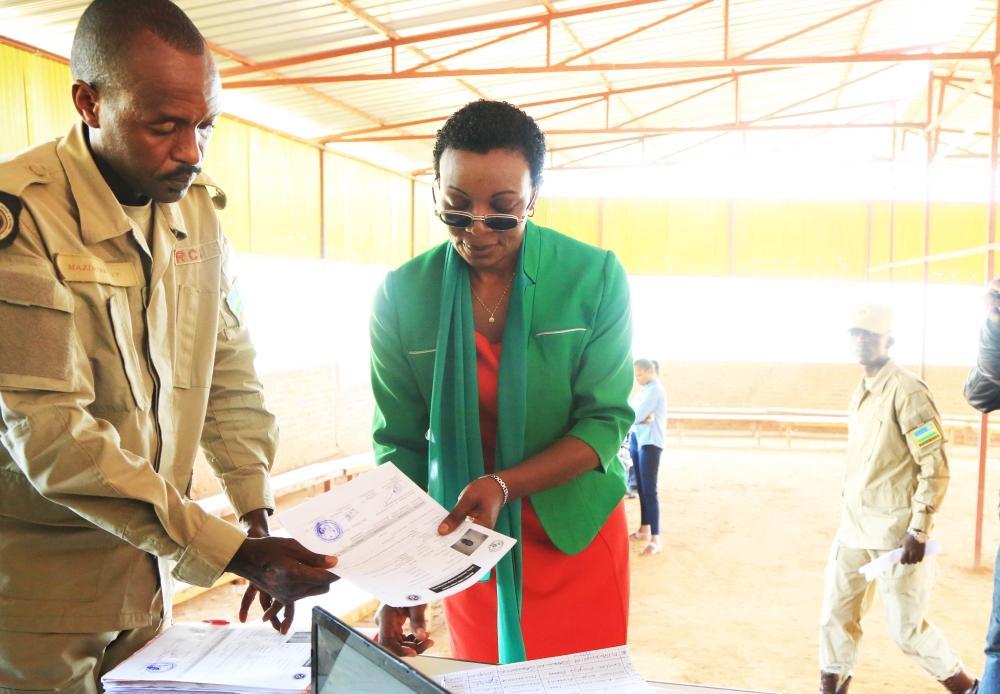Sanny Ntayombya
Africa-Press – Rwanda. As we commence 2024 with more than mere hope but rather justified optimism, Rwandans have much to look forward to. Here in Kigali, we will witness the inauguration of the 45,000-seater Amahoro National Stadium, the unveiling of public running tracks, and the development of additional neighborhood roads. Further afield, and thanks to the completion of the Ngoma-Nyanza southern axis highway, road users can now traverse from Rusumo border post in Kirehe District to Kamembe in Rusizi District without the need to pass our congested capital city.
The burgeoning MICE industry is set to expand further this year with sports and music events such as Tour du Rwanda, BAL (Basketball Africa League Finals), and Global Citizen’s Move Afrika making a return. Additionally, in a positive development for conservation, Rwanda will celebrate the 20th Kwita Izina baby gorilla naming ceremony. In April, Rwandans will commemorate the 30th anniversary of the 1994 Genocide against the Tutsi, and in July, they will cast their votes in presidential and parliamentary elections. It’s a significant year for us.
Similarly, it’s a pivotal year for those who don’t wish Rwanda well. Like clockwork, they will shamelessly piggyback off this year’s achievements to push their narratives. The tired narratives include claims that Rwanda isn’t ‘free’ or ‘safe’, Rwandans can’t speak or vote freely, democracy is non-existent, government officials engage in transnational crimes, and the country’s commitment to being a responsible and active member of the international community is nothing but a lie.
Think I’m exaggerating? How about this for evidence.
Three days ago, editors at The Guardian newspaper published an article by Conrad Landin and Rajeev Syal that shouldn’t have seen the light of day in my view. In the laughable news piece, the two writers interviewed a known member of Rwanda National Congress, a terrorist outfit that engaged in grenade attacks in Kigali a few years ago, and asked for his opinion on whether or not migrants from the UK would be safe in Rwanda.
By referring to him as a ‘Rwandan opposition politician who narrowly survived an assassination attempt’ after reportedly being stabbed near Johannesburg’s OR Tambo international airport by unknown assailants in 2012, the Guardian writers sought to create the impression that Rwanda was somehow involved in that crime. Never mind the fact that the country that ‘opposition’ member called home was (and is) literally one of the murder capitals of the world-alongside Honduras and Jamaica.
South Africa’s own crime statistics reveal that people face serious problems of violence, especially murder and attempted murder. Their per capita murder rate for 2022/23 was 45 victims per 100,000 people. In comparison, Rwanda’s rate has never gone above four victims per 100,000 people. Tragically, too many South Africans, including rapper AKA (real name Kiernan Jarryd Forbes) and reggae legend Lucky Dube, have fallen victim to the country’s climbing crime rates. So, the question I’d like to pose is, are Rwandans (both opposition or pro-government) immune to this criminality? I’d say not. Pretending otherwise and trying to pin it on Rwanda was proof of blatant bias on the part of The Guardian.
Has anyone gotten as tired as me of seeing felon Victoire Ingabire being feted as some kind of relevant voice? Well, if you have, get ready for even more of her across our screens and news pages in 2024.
Western media unilaterally decided that she is some kind of representative of ours. That is why every single time there is the need for an ‘opposition’ voice, they trot her out like some kind of show pony. Never mind that we have serious opposition parties, such as Frank Habineza’s Green Party, that actually play a role in the country’s political life. She is the kind of African they want (and she plays that role to a tee). Never mind what we Rwandans want. They shall force her and her horrible opinions down our throat.
This year, people who know nothing about our daily lives, our culture, or our history (both its tragedy and its triumph) will unashamedly use this year’s coming events to drive biased narratives. Thankfully, we see them a mile away and are ready to fiercely push back with all the means at our disposal.
Source: The New Times
For More News And Analysis About Rwanda Follow Africa-Press






